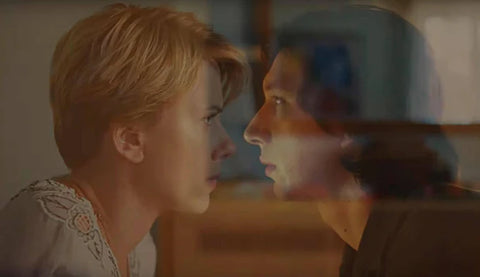
I remember when Marriage Story debuted on Netflix, it was immediately a hot topic in various film discussion groups. The reactions were overwhelmingly positive—many people called it moving, some even declared it the best film of the year.
Last week, I finally watched Marriage Story. A critic once commented that the film’s title is its most ironic aspect. It tells a tale of divorce, yet calls itself a story about marriage. I wondered: does divorce truly stand in opposition to marriage? Or is it simply a possibility that marriage inherently carries within it? I imagine that nearly every married couple has, at some point, entertained the thought of divorce. Those who choose to stay together might do so out of love—or perhaps out of convenience, the desire to spare their children, or the fear of social judgment.
Marriage, to me, is a foreign concept. As a child, I looked at my parents and thought that was what marriage was—sometimes laughing, sometimes arguing. I vividly recall that every time the three of us went out together, my parents would inevitably have some minor squabble. Once, I held their hands as we walked to catch a bus. When they saw it about to pull away, they suddenly broke into a run. Caught off guard, I couldn’t keep up and fell. They kept pulling me along, my knees scraping against the pavement, until we finally boarded the bus. I looked down at my legs, bloodied and raw.
Marriage must be something like that, I thought—a journey of stumbles and scrapes, of being dragged forward even when you can’t keep pace.
But then, when I was seventeen, my father passed away. My mother and I went to a lawyer’s office. Another woman and a girl around my age were also there—my father’s ex-wife and daughter, as it turned out. The lawyer explained that since my parents had never formally registered their marriage, my mother had no claim to his estate. My mind went blank. Everything I’d thought about my parents’ relationship wasn’t what I’d assumed it to be. The woman, who was legally my father’s wife, looked frail, with dark circles under her eyes. I imagined the difficult life she must have led raising her daughter alone. Though we weren’t related by blood, I felt a deep sense of guilt on my father’s behalf.
From that moment, the idea of marriage became even murkier to me.
This Christmas, I bought a photo book documenting the life of Jane Birkin and Serge Gainsbourg—a collection of candid, tender snapshots of their family life. Sometimes Serge looked effortlessly cool, and other times he acted like a madman. Jane always gazed at him with love in her eyes. They raised Jane’s daughter from her previous marriage together and later had a daughter of their own. In the photos, they play with their children, smoke cigarettes, and exude a sense of unburdened freedom.
They never married. The bond between them was love alone. Even after they separated and found new partners, Serge became the godfather to Jane’s child with her next partner, and Jane placed a cherished childhood toy beside Serge when he was laid to rest. Their relationship might not conform to conventional ideas of morality, but to me, love that is free spares itself from much of the ugliness that can arise. There’s no need for compromise, and thus no room for resentment.
“Criminal lawyers see bad people at their best; divorce lawyers see good people at their worst.”
While watching Marriage Story, I sighed more than once. They clearly loved each other. They clearly still cared. Why, then, must people who once shared so much push each other to such irreconcilable extremes? Why does love sometimes end in divorce? That’s not something I can answer with my limited life experience. And what is marriage, truly? Perhaps I won’t fully understand until I experience it myself. For now, I think marriage might be like the letter Charlie only reads much later—a life of seemingly mundane moments, filled with unnoticed acts of love, whose value becomes clear only when it’s too late.
Does a happy marriage exist in this world? I believe it does. And you should, too.

